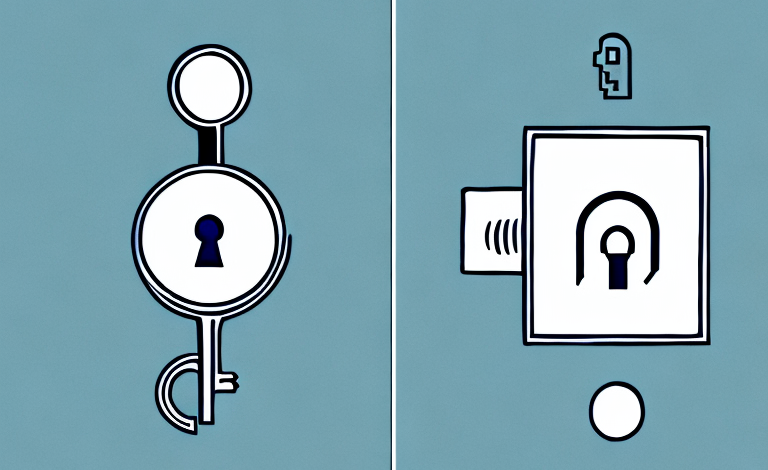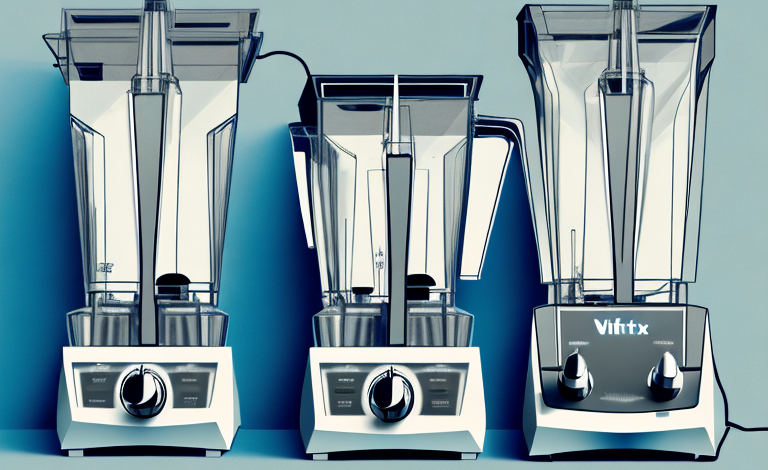Home security is a top priority for many homeowners. One of the most fundamental security features in any home is the lock on the front door. For decades, the traditional key lock has been the go-to for securing homes. However, recent advancements in technology have given rise to smart locks, leaving many people wondering if they are a safer option than key locks. In this article, we will explore the security benefits, convenience factor, cost, compatibility with home security systems, drawbacks, and potential vulnerabilities of both options to help you make an informed decision on which lock to choose.
The security benefits of smart locks
Smart locks offer several security benefits that key locks cannot match. One of the most significant advantages is the ability to monitor your home’s entry points from anywhere in the world using your smartphone. With smart locks, you can lock or unlock your front door remotely, grant access to trusted individuals, and receive notifications when someone enters or leaves your home. Moreover, smart locks can detect and alert you to suspicious activity, such as someone attempting to pick the lock or tamper with the system, allowing you to take immediate action.
Another advantage of smart locks is that they eliminate the need for physical keys, which can be lost or stolen. This means that you don’t have to worry about unauthorized individuals gaining access to your home with a copied key. Additionally, smart locks can be programmed to automatically lock themselves after a certain period of time, ensuring that your home is always secure even if you forget to lock the door when leaving. Overall, smart locks provide a convenient and secure way to protect your home and loved ones.
How key locks compare to smart locks in terms of security
While key locks have been a reliable security measure for decades, they do have some drawbacks compared to smart locks. Key locks, for instance, can be easily picked by an experienced burglar, and if a key is lost, it can fall into the wrong hands, increasing the risk of a security breach. Additionally, a key lock cannot provide you with real-time notifications or remote access, forcing you to rely solely on physical keys to gain entry to your home. On the other hand, smart locks are designed with encryption technology, making it nearly impossible for intruders to hack the system.
Another advantage of smart locks is that they can be easily integrated with other smart home devices, such as security cameras and alarm systems. This means that if someone tries to break into your home, the smart lock can trigger the alarm and send you an alert on your phone, allowing you to take immediate action. Moreover, smart locks can be programmed to grant temporary access to guests or service providers, eliminating the need to hide a spare key under the doormat or in a flowerpot.
However, it’s worth noting that smart locks are not foolproof and can also have vulnerabilities. For example, if the Wi-Fi network that the smart lock is connected to is not secure, it can be hacked, giving unauthorized access to your home. Additionally, if the smart lock’s battery dies or malfunctions, you may be locked out of your home until the issue is resolved. Therefore, it’s important to choose a reputable brand and follow the manufacturer’s instructions for installation and maintenance.
The convenience factor of using smart locks
Smart locks have revolutionized the way we secure our homes, primarily by making it more convenient to access and monitor entry points. With a smart lock, you can easily lock and unlock your front door without searching through your pockets or purse for keys. Moreover, in cases where you need to grant access to trusted individuals or repair personnel, a smart lock can save you the trouble of having to be physically present to let them in.
Another advantage of smart locks is that they can be integrated with other smart home devices, such as security cameras and alarm systems. This means that you can monitor who is entering and leaving your home, and receive alerts if there is any suspicious activity. Additionally, some smart locks can be controlled remotely through a smartphone app, allowing you to lock or unlock your door from anywhere in the world.
Smart locks also offer a higher level of security compared to traditional locks. They use advanced encryption and authentication methods to prevent unauthorized access, and some models even have features like fingerprint recognition or facial recognition. This makes it much more difficult for burglars to break in, and gives you peace of mind knowing that your home is well-protected.
The drawbacks of traditional key locks
Key locks can be inconvenient at times, especially when you are in a rush or have your hands full. Moreover, if you misplace your keys or have them stolen, it can expose your home to a security threat. Additionally, key locks require periodic maintenance, including lubrication and occasional lock replacements, adding to the overall cost of the lock.
Another drawback of traditional key locks is that they can be easily picked by experienced burglars. This is because the mechanism inside the lock is relatively simple and can be manipulated with the right tools. This means that even if you have a high-quality lock, it may not be enough to deter a determined intruder. As a result, many homeowners are turning to more advanced security systems, such as smart locks and biometric locks, to better protect their homes.
How smart locks work and what makes them secure
Smart locks are mechanical and electronic systems that use a combination of software and hardware to control access to homes. They include features like numeric codes, biometric scanning, and voice recognition, making it easier to access your home without the need for physical keys. Unlike key locks, smart locks use encryption technology to validate access, making it more difficult for unauthorized individuals to enter your home.
One of the benefits of smart locks is that they can be controlled remotely through a smartphone app. This means that you can grant access to your home to trusted individuals, even if you are not physically present. Additionally, some smart locks can be integrated with other smart home devices, such as security cameras and alarms, to provide a comprehensive home security system.
However, it is important to note that no security system is foolproof. Smart locks can still be vulnerable to hacking and other cyber attacks. It is important to choose a reputable brand and to keep your software up to date to minimize the risk of a security breach. It is also recommended to have a backup physical key in case of a power outage or other technical issues.
Understanding the technology behind smart locks
Smart locks use a combination of radio frequency identification (RFID) technology, Bluetooth, and Wi-Fi to control access to your home. The locks are configured to work with a smartphone app that allows you to manage access, set up alerts, and receive notifications when someone enters or leaves your home. Moreover, some smart locks come equipped with sensors and cameras that allow them to detect and record activity, adding an extra layer of security.
RFID technology is used to identify and authenticate the user’s credentials, such as a key fob or a card, which are programmed to work with the lock. Bluetooth technology is used to communicate with the lock from a short distance, typically within 30 feet. Wi-Fi technology is used to connect the lock to the internet, allowing you to control it remotely from anywhere in the world.
Smart locks are not only convenient but also eco-friendly. They eliminate the need for physical keys, which can be lost or duplicated, leading to security risks. Additionally, smart locks can be programmed to automatically lock and unlock at specific times, reducing the need for manual intervention and saving energy in the process.
Smart lock features that enhance home security
Smart locks come with a host of features that enhance home security, such as remote access, real-time notifications, and motion detection sensors. Some smart locks can also integrate with other home security systems, such as video doorbells, smoke detectors, and security cameras, creating a comprehensive security network.
Comparing the cost of smart locks to key locks
Smart locks can be more expensive than key locks, primarily due to the additional technology and features they offer. The cost of a smart lock can vary depending on the brand, style, and features, but generally, they range from $100 to $300. In comparison, key locks can cost as little as $20, with high-end options costing up to $200.
Smart lock compatibility with other home security systems
Smart locks are designed to integrate with other home security systems, such as video doorbells and security cameras, making it easier to monitor your home’s entry points. Moreover, some smart locks can connect to voice-activated assistant devices, such as Google Home and Amazon Alexa, allowing you to control access to your home using voice commands.
Potential vulnerabilities of smart locks and how to address them
Smart locks are generally secure but are not entirely foolproof. Like any technology, they have potential vulnerabilities, such as hacking attacks, power outages, and software glitches. However, these risks can be mitigated by using strong passwords, ensuring your Wi-Fi network is secure, and periodically checking for software updates.
The impact of smart locks on home insurance premiums
Using smart locks in your home may qualify you for a discount on your home insurance premium. Insurance companies are beginning to recognize the enhanced security benefits of smart locks, and some are rewarding homeowners who use them. Check with your insurance provider to see if they offer any discounts for using smart locks.
User experience with different types of smart locks
User experience is a crucial factor when it comes to choosing the right lock for your home. Smart locks come in different types, ranging from traditional-style locks with digital upgrades to full-on biometric scanning technology. Before investing in a smart lock, consider factors such as ease of use, durability, and reliability.
Smart lock maintenance tips for optimal performance and security
Like any mechanical and electronic system, smart locks require maintenance to function optimally. Some tips include periodically changing batteries, cleaning sensors and cameras, and checking for firmware updates. Moreover, ensure your smart lock is installed correctly to avoid any issues.
Addressing common concerns about using smart locks in your home
Modern technology can be daunting, and smart locks are no exception. Some common concerns include hacking, compatibility, and learning curve. However, with the right education and knowledge, these concerns can be addressed, giving you the peace of mind you need to enjoy the security benefits that smart locks offer.
In conclusion, both smart locks and key locks have their unique advantages and drawbacks. While the traditional key lock is reliable, it lacks the convenience and enhanced security benefits that smart locks offer. However, smart locks can be more expensive, and with any technology, there is always the risk of potential vulnerabilities. Ultimately, it is up to each homeowner to decide which lock best suits their needs and budget.



